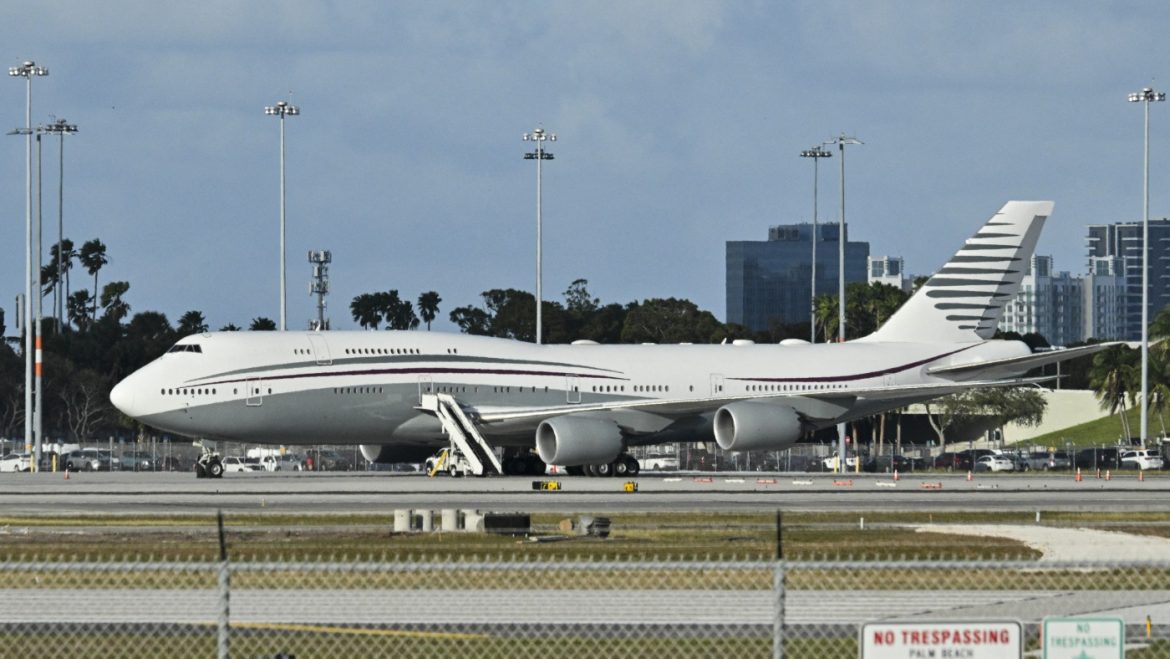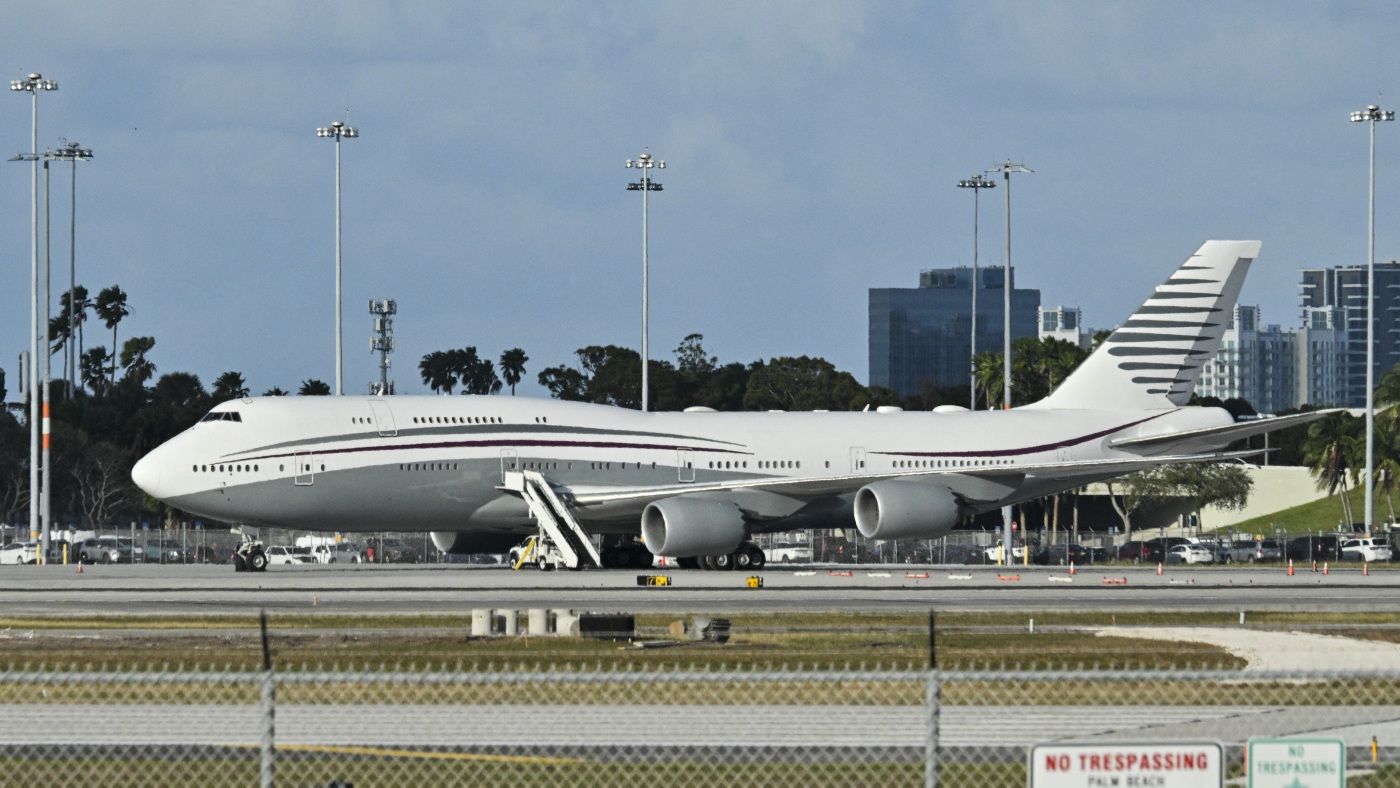The Trump Administration’s Acceptance of Qatar’s Gifted Jet for Air Force One Use: An In-Depth Analysis
In a move that has sparked significant discussion and controversy, the Trump administration officially accepted a luxury Boeing 747 jet donated by Qatar, intended for use as the presidential aircraft—commonly known as Air Force One when the President is aboard. This development stirred varied reactions, including bipartisan criticism, ethical questions, and logistical considerations. The following analysis delves into the nuances of this event, outlining its background, implications, and potential challenges.
—
Background: The Gifted Boeing 747 Jet from Qatar
The luxury aircraft in question is a Boeing 747-8, valued at an estimated $400 million. Qatar offered this megajet as a gift to the United States, a gesture publicly acknowledged and endorsed by then-President Donald Trump, who remarked that declining such a gift would be “stupid.” The Pentagon, via Defense Secretary Pete Hegseth, formally accepted the jet, signaling compliance with federal rules and regulations governing gifts to the government.
Trump’s interest in this generous offer coincided with delays and mounting costs in the official Air Force One replacement program managed by Boeing. That project, which centers on procuring two new specially configured 747-8 aircraft to serve as presidential transport, has faced significant setbacks and cost overruns—originally budgeted near $3.9 billion.
—
Security, Logistics, and Upgrading the Jet
Although Qatar’s gift represents a potential solution to the Air Force One delay, experts emphasize that repurposing a commercial luxury jet for presidential use is far from straightforward. The aircraft requires years of specialized modifications to meet the stringent confidentiality, security, and operational standards intrinsic to Air Force One.
The modifications include installing secure communication systems, defensive countermeasures, and adapting the interior to cater to presidential duties and the necessary entourage. The Pentagon has been tasked with rapidly overseeing these upgrades, but transformative adjustments of this scale are complex and costly, leaving questions about the ultimate feasibility and timing of deploying the Qatar jet in this new role.
—
Political and Ethical Reactions
The acceptance of Qatar’s gift has drawn sharp bipartisan criticism, raising several ethical and geopolitical concerns:
– Ethical Issues and Influence: Critics, including some of Trump’s own supporters, expressed unease over the optics and potential influence of accepting such an expensive gift from a foreign government. They questioned whether this decision might create complicated diplomatic expectations or favors owed, especially given the geopolitical complexities of the Middle East.
– Transparency and Congressional Oversight: Lawmakers have called for greater transparency regarding the acceptance process, asking how the jet was vetted and whether Congress was adequately consulted. The decision raised debate over the rules that govern foreign gifts to the executive branch, invoking scrutiny over potential conflicts of interest.
– Bipartisan Political Firestorm: Both Democratic and Republican representatives voiced concerns, illustrating the unusual bipartisan discomfort with this particular foreign donation. Opposition stemmed partly from worries that the move was more symbolic and politically motivated rather than grounded in strategic military or operational necessity.
—
Strategic Considerations and Longer-Term Outlook
On a strategic level, the gift presents both an opportunity and a challenge:
– Interim vs. Permanent Solution: While the gifted 747 might serve as an interim presidential aircraft to address delays in the official program, experts remain skeptical about its long-term utility given the extensive retrofitting required.
– Budgetary Impact: Although the gift is said to be “free of charge,” the costs associated with security upgrades, maintenance, and operation are significant. This expense is borne by the Defense Department and ultimately taxpayers, potentially offsetting the financial benefit of the donation.
– Diplomatic Signal: Accepting such a large gift from Qatar could be interpreted as a diplomatic gesture affirming ties between the U.S. and Qatar. However, given Qatar’s strategic position and its complex relationships with neighboring countries, this move may affect regional dynamics and U.S. diplomatic flexibility.
—
Conclusion: A Controversial Step with Complex Implications
The Trump administration’s formal acceptance of the luxury 747 jet from Qatar for potential use as Air Force One embodies a multifaceted development. On one hand, it offers a potentially expedient, high-profile solution amid delays in the presidential aircraft replacement program. On the other, it sparks ethical, diplomatic, and logistical concerns that complicate its implementation.
This episode exemplifies the intricate balance between operational requirements, political symbolism, and geopolitical implications when foreign governments’ gifts intersect with national security assets. As the Pentagon advances the retrofit process, public and congressional scrutiny will likely continue, demanding transparency and careful navigation of the fine lines between diplomacy, security, and ethics.
The future of this gifted jet as Air Force One will ultimately depend not only on technical feasibility but also on how well these broader challenges are managed—and whether this gift becomes a pragmatic asset or a lasting political flashpoint.


